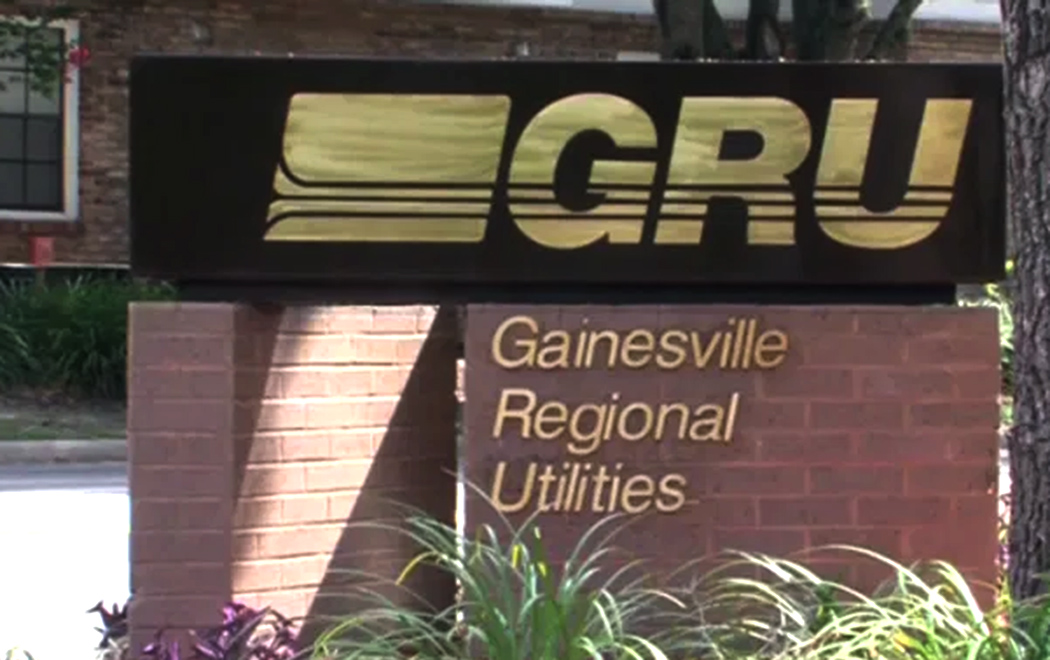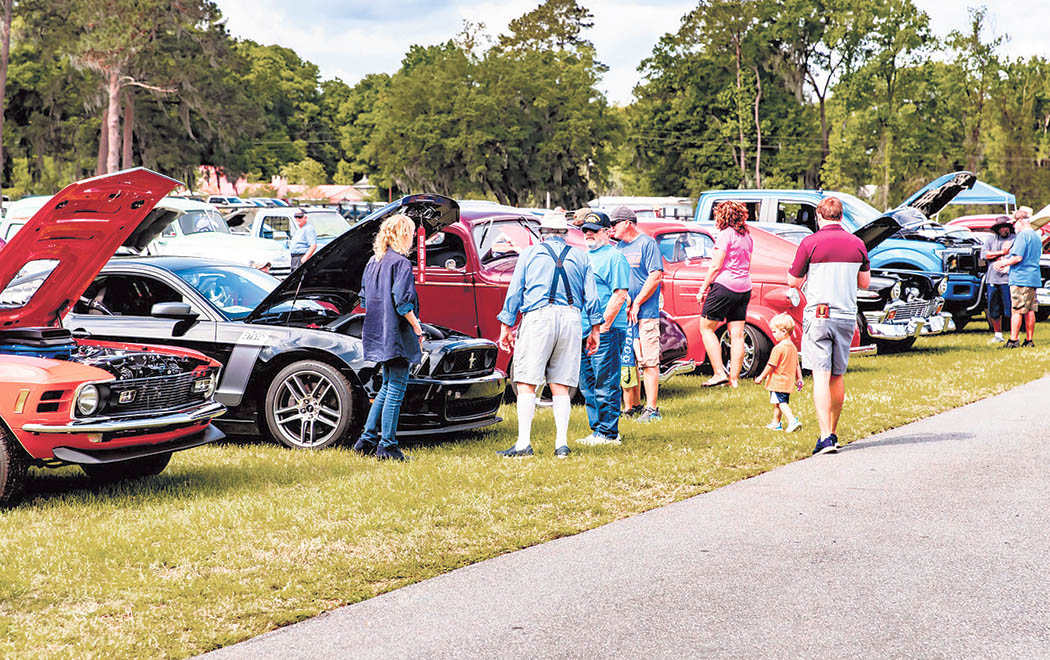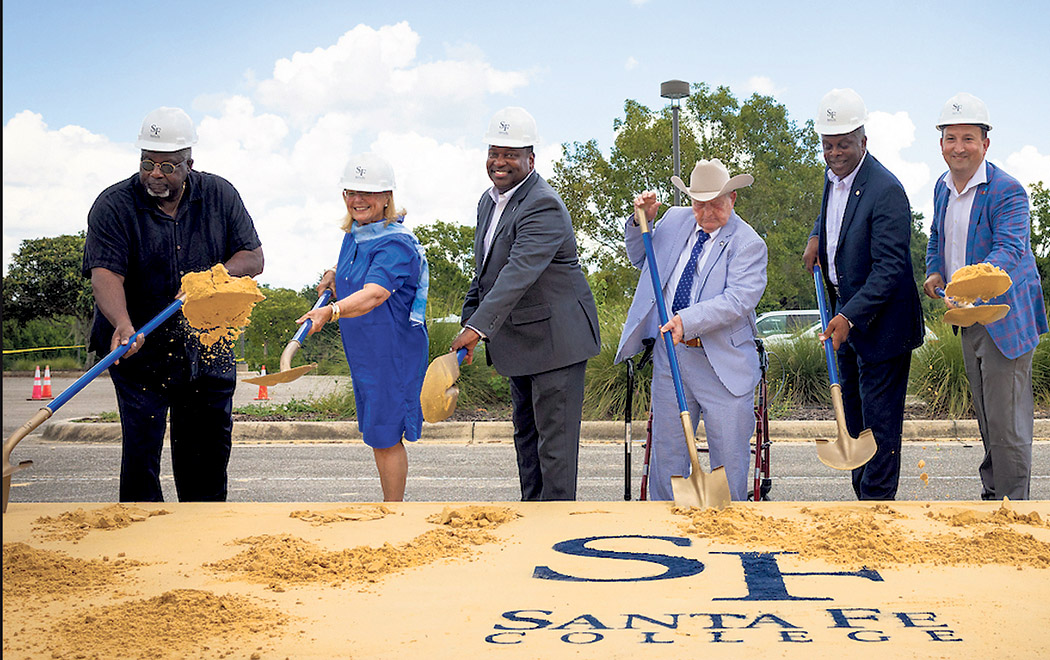Court Dismisses Gainesville GRU Lawsuit
BY JENNIFER CABRERA/Alachua Chronicle
TALLAHASSEE, Fla. – In an order issued today, Leon County Circuit Judge Angela Dempsey granted the defendants’ Motions for Summary Judgment against the City of Gainesville’s claims that HB 1645, the bill creating the GRU Authority, is unconstitutional.
The City filed the lawsuit in July against Governor Ron DeSantis, Attorney General Ashley Moody, and Secretary of State Cord Byrd, arguing that the Governor does not have the authority to control a municipal utility, the bill assigns legislative powers to an appointed body, the bill impairs the City’s ability to enter into contracts, the bill required a referendum, and municipal functions may not be transferred to an appointed board.
The City filed a motion for summary judgment on August 18, and the defendants filed motions for summary judgment on September 15. The defendants argued that they are not proper parties to the lawsuit, the City lacks standing, and all claims made by the City are barred by sovereign immunity. The Attorney General and Secretary of State also argued that the City failed to state a legally sufficient claim.
The judge ruled for the defendants on every point.
Each defendant is an improper party
Judge Dempsey wrote that the City did “not allege, much less demonstrate” that the defendants are charged with enforcing the statute; the state official charged with enforcing the statute is the proper defendant in any lawsuit challenging the constitutionality of a law. Judge Dempsey wrote that the GRU Authority enforces the statute in this case, not the Governor, Attorney General, or Secretary of State.
The City made the claim that the Governor is a proper party because he appoints the members of the Authority and that his appointment power makes him the “manager or supervisor” of the Authority; Judge Dempsey wrote, “Neither is true.”
The City lacks standing
Judge Dempsey wrote, “To challenge the constitutionality of a statute in Florida’s courts, a plaintiff must show that his constitutional rights have been infringed by the challenged statute.” When determining a plaintiff’s standing, courts consider three elements: the plaintiff must have an “injury in fact,” must establish a causal connection between the injury and the plaintiff’s conduct, and must show a substantial likelihood that the requested relief will remedy the injury. On top of that, as a municipality, the plaintiff must show that its claims are not barred by the Public Official Standing Doctrine.
Judge Dempsey ruled that there can be no injury at this point because the Authority has not yet been seated, so “nothing can or will change unless and until the Authority, once established, makes a change.”
Public Official Standing Doctrine
Judge Dempsey wrote that all the City’s constitutional claims are barred by the Public Official Standing Doctrine, which provides that public officials may not challenge the constitutionality of statutes affecting their official duties.
Sovereign Immunity
In Florida, Judge Dempsey wrote, “sovereign immunity is the rule rather than the exception… Indeed, Plaintiff has not refuted this argument.”
City failed to state a claim as to each count
The City’s complaint contains eight counts. The first is that the law is “unconstitutionally vague,” but Judge Dempsey wrote that the City’s arguments were invalid; for example, the City argued that the term “municipal unit” is undefined, but “the term is not used in the law.” In addition, precedents hold that any conflict between the law and a special charter provision is settled in favor of the special charter provision.
The second count is that the statute affects the contract for the sale of the City’s Trunked Radio System and its bond resolutions. Judge Dempsey wrote that “no such contract exists” for the Trunked Radio System and that the statute complies with provisions in the existing bond resolutions.
The third count is that a referendum was required to change the City’s charter, but Judge Dempsey wrote that the law requires a municipality seeking to amend its charter to engage in the referendum process but not the legislature.
The fourth count is that the statute violated the notice provisions in Florida’s constitution and statutes. Judge Dempsey cited evidence showing that City officials, including the Mayor, were well aware of the basic provisions of the law in March 2023 and thus had adequate time to gather information about the bill or “persuade the legislature to change its substance.”
The fifth count is that the Governor does not have the authority to appoint members of a municipal board, but Judge Dempsey wrote, “the Constitution is a limitation of power, not a grant on power” and “Plaintiff has not cited any constitutional provision that expressly or impliedly states that the Governor cannot appoint the members of the Authority.” Citing previous court cases, Judge Dempsey added, “It is clear that the Legislature has the authority to create this type of independent governing body.”
The sixth count is that the statute improperly creates a municipal legislative body that is not elected, but Judge Dempsey wrote that the Authority is not a legislative body.
In the two remaining counts, which argued that provisions in the law conflict with other statutes, Judge Dempsey wrote, “To the extent that any conflicts exist, the provisions of [HB 1645] are controlling.”
City Commission has already approved $500k for lawsuit
The City Commission recently allocated an additional $250,000 to the lawsuit, on top of an initial $250,000, in response to bills from the Akerman firm. The firm has been billing the City between $70,000 and $98,000 per month, with $219,135 billed so far and another $150,000+ anticipated by the end of this month.
Clemons: “This court order is a strong message… to put aside any differences”
Representative Chuck Clemons, who sponsored the bill, sent Alachua Chronicle the following statement: “This is a great day for the ratepayers and employees of GRU! It is my sincere hope that this clear and concise order issued by Judge Dempsey once and for all lays to rest the campaign of false narratives launched by detractors of this critical legislation. Throughout, it has been my unwavering commitment to return GRU back to its founding principles of providing the best and most affordable power to its customers. It was the pleas of those very customers who were the catalyst for this change in governance, and this court order is a strong message for all stakeholders to put aside any differences and work towards building a strong utility.”
Eastman: “Now we’re left with a vague and poorly drafted bill”
City Commissioner Bryan Eastman sent the following statement: “Unfortunately, the court didn’t rule on the constitutionality of this clearly unconstitutional takeover by Gov. Ron DeSantis, the courts simply punted on the substance of the case. Now we’re left with a vague and poorly drafted bill, creating a clearly unconstitutional board, being ran by appointees who reside illegally outside of our city, and without any clarity on whether this is legal or not.”
# # #
Email editor@
alachuatoday.com
Add a comment





